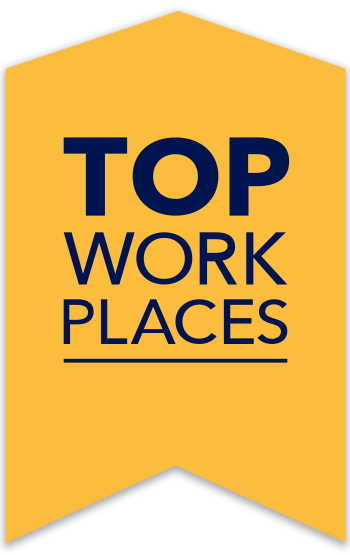Some might say that ethical leadership is fluffy, but research shows it has serious benefits and is more widely practiced now than ever. Ethical leaders strengthen company morals, principles, and values. They follow a higher standard of conduct and encourage others to do the same. In this blog, we answer the questions “what is ethical leadership” and “why is it important”.
What is ethical leadership
So, what is ethical leadership and why is it important? To start, ethical leaders act fairly, are consistent, do not tolerate unethical behavior, know their values well, speak up, and take responsibility. They are honest and respectful, knowing those traits help their employees and business perform at a higher standard.
Ethical leadership promotes higher levels of employee engagement — improving culture, productivity, and retention. Not only does it improve daily operations, but it also makes your brand reach and talent attraction more powerful.
Why is ethical leadership important?
You may be wondering why ethical leadership is important. The world is filled with many different businesses. Meaning: competition can come from any angle. A solid moral compass helps companies stand out against their competition and find growth faster. Customers and employees know how much ethical leadership impacts organizational culture and workplace productivity. They want to interact with companies that also understand the importance of ethical leadership.
Luckily, leadership can improve employee engagement and improve employee retention by strengthening company ethics. Promoting strong values to employees and others in leadership positions makes a company operate more smoothly, but the top benefit is brand attraction. These days, showing solid ethics makes your business seem human. Long story short, ethical leaders help attract more customers.
Principles of an ethical leader
Great leaders value their employees just as much as their profits. Ethical leaders go one step further, prioritizing people, profits, and the planet evenly. These principles usually come naturally but can also be learned over time:
- Accountability: leaders are held to a higher standard, owning up to their mistakes because they see shortcomings as opportunities for growth
- Fairness: promoting an inclusive culture helps ethical leaders achieve equality, but also growth and innovation
- Honesty: transparency means a lot to employees, but combining honesty and optimism boosts engagement
- Respectfulness: being emotionally aware and genuine helps leaders listen actively and offer regard to other opinions and values
- Trustworthiness: ethical leaders respect their employees just as much as those employees respect them, making it easier to communicate openly and honestly
Still curious about the overlap between great and ethical leadership? Compare with: Signs of a Great Leader.
Characteristics of an ethical leader
The abovementioned principles sound impressive, but they can take time to achieve. Ethical leaders practice what they preach and follow through daily. Not to be confused with the qualities of a good manager, the typical characteristics of ethical leadership include:
- Adapting calmly to bumps in the road helps guide employees toward optimism and more opportunities for creative ideas
- Asking tough questions, even if they are uncomfortable or unpopular
- Being a great role model is a never-ending job for ethical leaders, but that’s okay with them if it means they’re inspiring others to act ethically
- Communicating openly about company ethos and values strengthens company dynamics and efficiency
- Having zero tolerance for ethical violations
- Mediating disagreements between others with equal respect and loyalty, no matter who is arguing
- Taking full responsibility for all mistakes and pivots within the company
How to improve ethical leadership
Research shows that there are many benefits of ethical leadership. When leaders have strong ethics, they boost company morale, customer engagement, and employee retention. Most people think it’s a sign that an organization is a stable and worthy investment. Ethical leaders build that environment by following these best practices:
- Acknowledge all future risks to employees to build respect and trust.
- Communicate values whenever possible, connecting daily tasks with the bigger picture.
- Celebrate and recognize employees often to boost engagement and motivation.
- Don’t ask employees to break the rules; that’s stressful for everyone.
- Help people develop and grow, even if that means outgrowing their current role.
- Hire top talent with shared values through intentional recruitment.
- Prioritize strong diversity, equity, and inclusion across internal teams for more creativity and innovation.
- Work with and promote other diverse, ethical, and inclusive organizations.
Ethical leadership examples
Maybe it’s because of the benefits of ethical leadership, but ethical leaders don’t take breaks — it’s a full-time commitment. There are certain situations where ethical leaders jump into action before anyone else. Some common examples include:
- Leading safety discussions with confidence
- Donating money and time to community development
- Finding learning opportunities as often as possible
- Following up on promises and goals
- Increasing value visibility in virtual and in-person work environments
- Making unpopular decisions for long-term benefits
- Surveying for hidden biases and business feedback
- Turning down partners that do not meet company standards
Great leaders deserve great recognition
The Top Workplaces for Great Leadership award celebrates the best leadership teams nationwide. Do your leaders deserve recognition? Nominate your organization today to celebrate the incredible people behind your culture!


